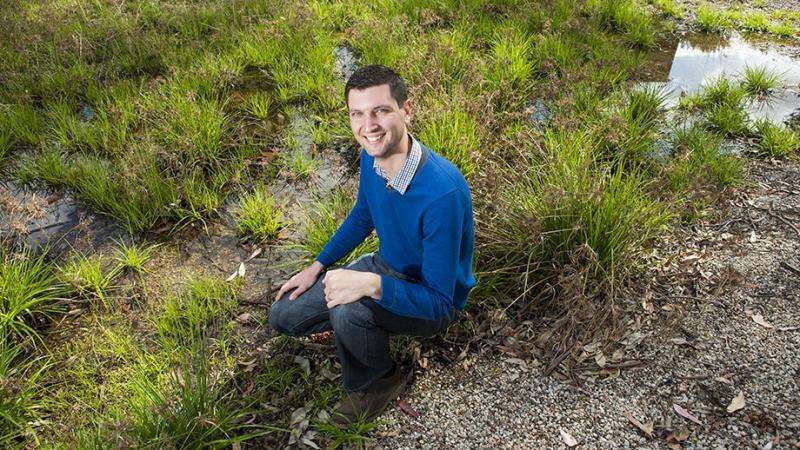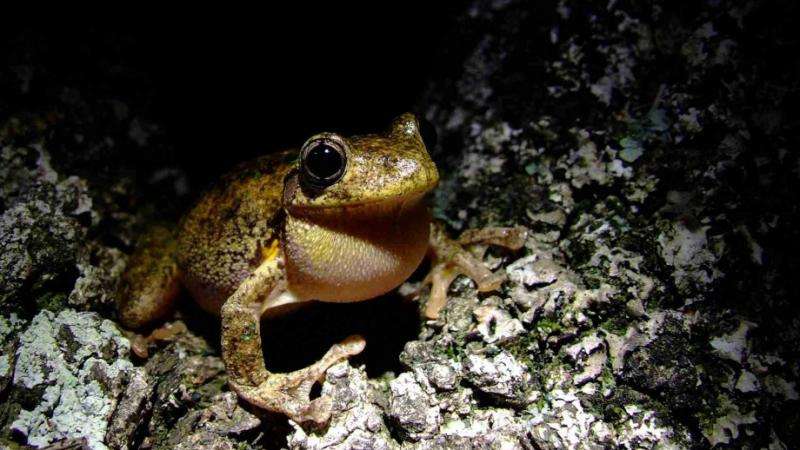Canberra's frog populations remain healthy

Researchers have found Canberra's frog populations remain healthy, although continued care is needed to make sure they don't die off.
Researchers from The Australian National University (ANU) have collaborated with citizen science program ACT Frogwatch to gain a detailed insight into the health of Canberra's frog species.
Postdoctoral Fellow at the Fenner School of Environment and Society Dr Martin Westgate said after accounting for the negative influence of urbanisation, frog populations in the ACT remain steady despite large declines in other parts of Australia.
"There was concern that over time we could continue to lose frogs but the really clear pattern from our analysis is that this hasn't happened," Dr Westgate said.
Canberra currently has nine species of frog commonly found in urban ponds.
Frog species all over the world have been going extinct due to Chytridiomycosis, an infectious disease caused by a particular fungus.
Before ACT Frogwatch started in 2002 there were concerns about frog populations in the ACT with Canberra having already lost three species.
"Of the eight species studied, four are increasing in the ACT, and one of these four, the whistling tree frog, is increasing rapidly" Dr Westgate said.
A team of researchers at the ANU gained a detailed insight into Canberra's frog species using 13 years of data collated by ACT Frogwatch volunteers. The data stretched across 320 wetlands over more than 3,500 visits.

"In the ACT there has been no large change over time positive or negative for the remaining four species, although it is possible that one or two of them are declining at a rate that is too slow for us to detect. We will need more data over the next few years to be sure" he said.
The research team also used satellite data from 2002 to 2015 to measure urban density.
"Maintaining green space and healthy wetlands in Canberra's suburbs is playing a key role in preserving our frog populations," he said.
"A big thank you goes to the ACT Frogwatch volunteers. Without their input and enthusiasm it would be too costly to generate this amount of quality data."
More information: Martin J. Westgate et al. Citizen Science Program Shows Urban Areas Have Lower Occurrence of Frog Species, but Not Accelerated Declines, PLOS ONE (2015). DOI: 10.1371/journal.pone.0140973
Journal information: PLoS ONE
Provided by Australian National University



















